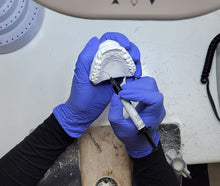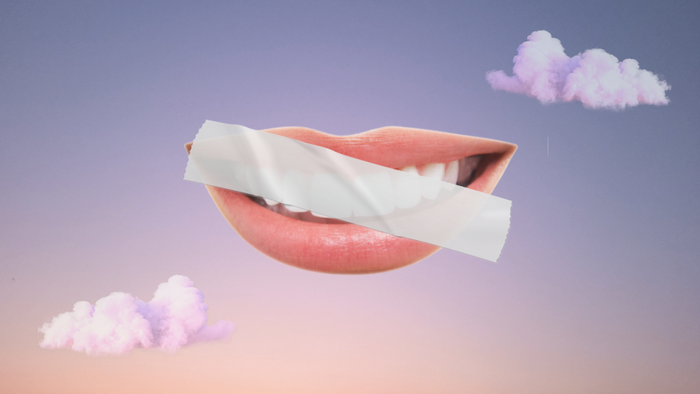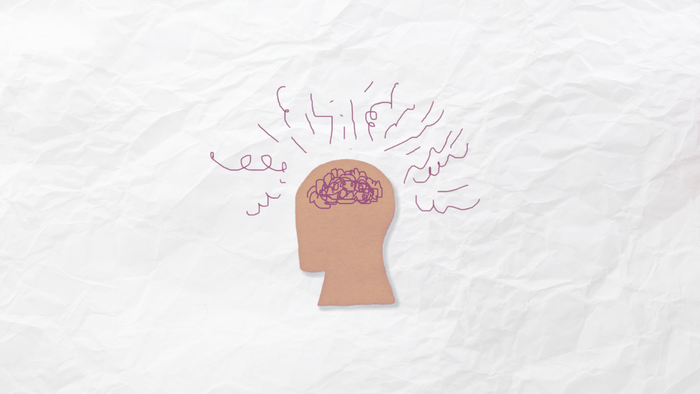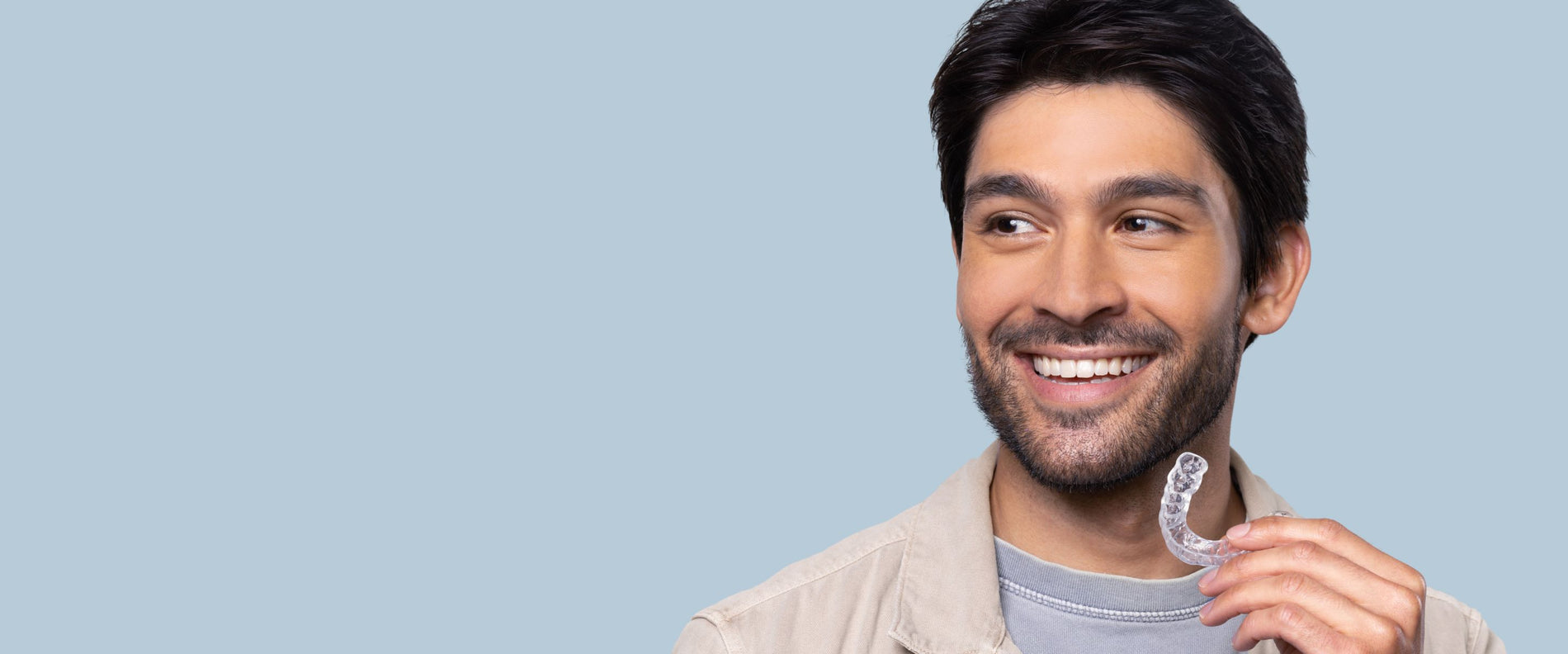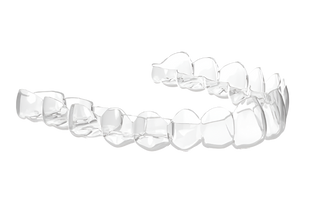In our stress-filled world, teeth grinding and clenching has become all too common, and unfortunately for us grinders, it’s a complicated beast. Though its cause is difficult to pin down and varies from person to person, teeth grinding, also known as bruxism, is typically caused by a combination of psychological and physical factors. One thing most of us do have in common, though, is wanting to know how to stop grinding our teeth.
Although it might seem discouraging that the number of people with bruxism is growing, the upside of this increase is that more solutions are becoming available and are being tested to help stop teeth grinding.
If you’re searching for a comprehensive look at all how to stop grinding or clenching your teeth, look no further. From natural remedies to Botox (yes, Botox!), let’s take a deep dive into what’s out there to stop the nightly grind.
Obligatory caveat: just like with any new treatments or solutions, be sure to check with your doctor before trying any out for yourself.
Stress Relief

When it comes to solutions for how to stop grinding or clenching your teeth, stress relief may be a promising area to explore. Stress and anxiety, as if they weren’t bad enough on their own, are also known to be one of the leading culprits behind teeth grinding. Numerous studies have linked stress with bruxism, with most pointing to our bodies’ “fight or flight” response as the main cause.
When we are in an active stress state, our muscles are tense and ready for action. Muscles in the jaw aren’t immune to those same stress hormones, which can result in subconsciously holding tension and clenching.
Because stress is a main cause of bruxism, taking steps to relieve stress can also be a step toward decreasing grinding.
From quick-acting stress relievers like taking deep breaths, listening to music, or taking a walk, to longer term coping strategies like regularly making time for exercise, seeking support, and making mindset changes, there are a multitude of options to help bring stress levels lower and ease the urge to grind and clench.
Pros: Good for your health overall not just your grinding, addresses teeth grinding through one of its typical root causes
Cons: It can be a real challenge to eliminate stress, and stress may not be the only culprit behind grinding
Want to learn more about stress and teeth grinding? Check out our in-depth article here.
Night Guard

One of the most well known and frequently recommended treatments for teeth grinding is a night guard. A night guard acts as a protective barrier between your upper and lower teeth which not only protects the actual surfaces of your teeth, but also acts as a cushion to absorb the clenching force of your jaw muscles to take the tension off of your jaw joint.
Of course, this treatment method addresses the effects of teeth grinding, rather than the cause, but it is effective in quickly and efficiently protecting teeth, decreasing headaches, and improving sleep quality. It’s essential that the night guard is custom made to fit your teeth and mouth properly to be the most effective it can be.
Pros: Protects your teeth from damage, helps relieve tension on jaw to reduce pain and discomfort, reduces headaches caused by grinding.
Cons: Doesn’t address the root cause of grinding, requires a custom fit [although in our humble opinion, that isn’t a con if you’re getting your night guard from us :) ]
Need help deciding which night guard is best for you? Get your personalized recommendation in 60 seconds.
Botox
A newer method for treating bruxism is Botox. Yes, you read that right. Once the darling of those seeking to rid themselves of wrinkles, Botox is now finding a new purpose as a treatment for teeth grinding. Botox is typically not the first line of defense in battling bruxism, but it has been recommended as an option for those who don’t respond to more conservative treatments.
To find out why, let’s first talk about how Botox is used for its traditional cosmetic purposes. Botox is a toxin that causes temporary paralysis of the muscles that it’s injected into. This might sound alarming, but Botox has been widely studied and researched to assure its safety.
For cosmetic purposes, it’s traditionally used on muscles throughout the face to reduce the formation and appearance of wrinkles. In the case of bruxism, it’s used on the muscles responsible for jaw movement. The Botox weakens the activation of the jaw muscles (typically the masseter and temporalis muscles), thereby lessening their ability to grind and clench the teeth.
Many people have found Botox to be effective in dramatically decreasing their grinding, though the effects are temporary and the treatment typically needs to be repeated every few months as the effects wear off. Some teeth grinders have noticed that with each progressive treatment, they are able to go longer before getting another treatment as the muscles are progressively weakened. Many people report a marked decrease in grinding, tension, and headaches.
Recent studies have also shown promising results, including a significant decrease in reported pain and bruxism activity, but more research is needed to further prove its effectiveness in combating teeth grinding.
Pros: Significant relief from muscle tension within days of treatment, reduction of headaches, marked decrease in teeth grinding
Cons: Need for multiple treatments due to temporary effects; though existing research is promising, more research is needed to prove effectiveness for bruxism; can be costly
Acupuncture

For those interested in how to stop grinding their teeth more naturally, another interesting treatment method is acupuncture. As you probably know, acupuncture involves the insertion of very thin needles at specific points to stimulate nerves and muscles. With teeth grinding, the goal is to relieve pain and tension throughout the jaw and temples.
At this point, most of the evidence about the effectiveness of acupuncture for treating bruxism is anecdotal, but some studies have been done that give insight into how well it works. A 2003 study found that acupuncture helped to decrease jaw muscle tension compared with no treatment. With more and more anecdotal evidence coming to light, it’s likely that more scientific studies will be done to further examine its efficacy.
Pros: Natural remedy, seeks to decrease muscle tension at its source
Cons: Not backed by strong evidence to prove its effectiveness, costs can add up if going for multiple treatments
Massage Therapy
Since teeth grinding and clenching happens as a result of muscle activation and tension, it makes sense that massage would be a potential treatment option. A 2015 study showed that massage therapy helped to decrease pain in people with bruxism. The study also found that massage therapy combined with using a night guard had the greatest impact on pain ratings. More research is needed to see if these findings hold true and to see if massage has any other effects on people who grind their teeth.
If you’re considering trying massage, it’s important that the massage therapist is familiar with bruxism and which muscles to specifically target.
Pros: Natural remedy, targets the muscles responsible for grinding and clenching
Cons: Needs more research, unclear how often treatments are needed or for how long to see any effects
Conclusion
There are many options out there to help with teeth grinding and clenching, but since it’s such a complex issue, they may work differently for different people. What works wonders for one person may not have an impact for someone else. Though at times the search for a solution can be discouraging, especially if you’re dealing with significant discomfort or other negative impacts from grinding, there are more studies being done and more solutions being tried than ever before. In the meantime, we’re here to be a resource for all you fellow teeth grinders out there.

